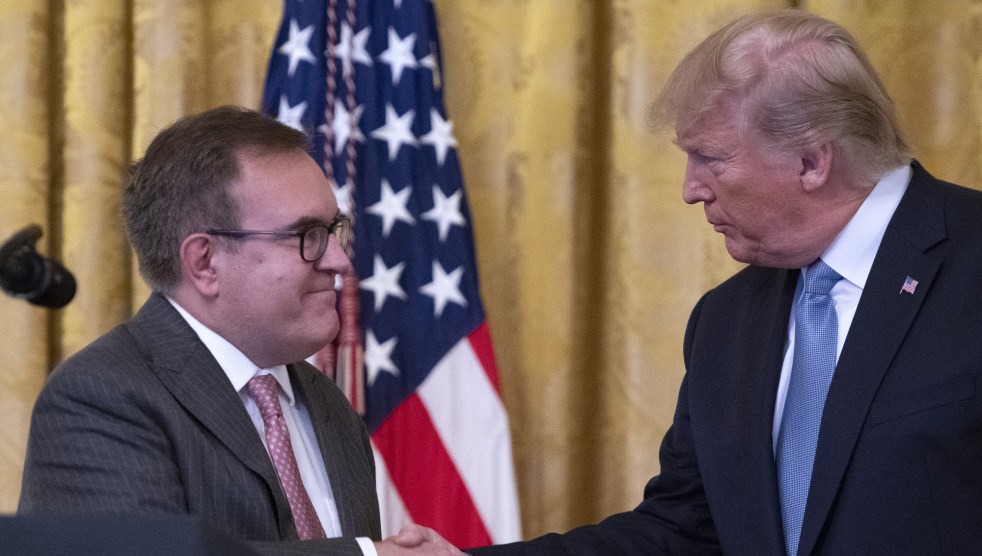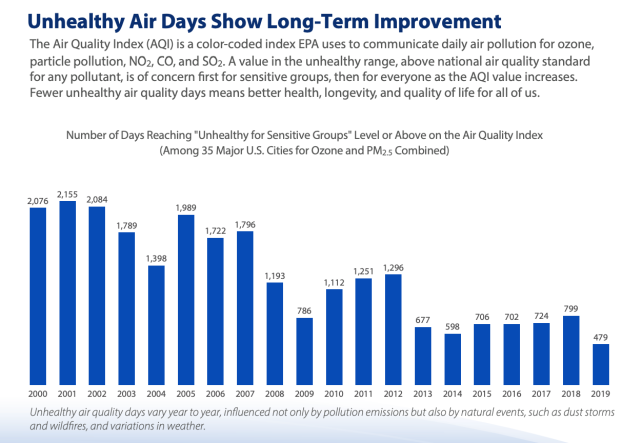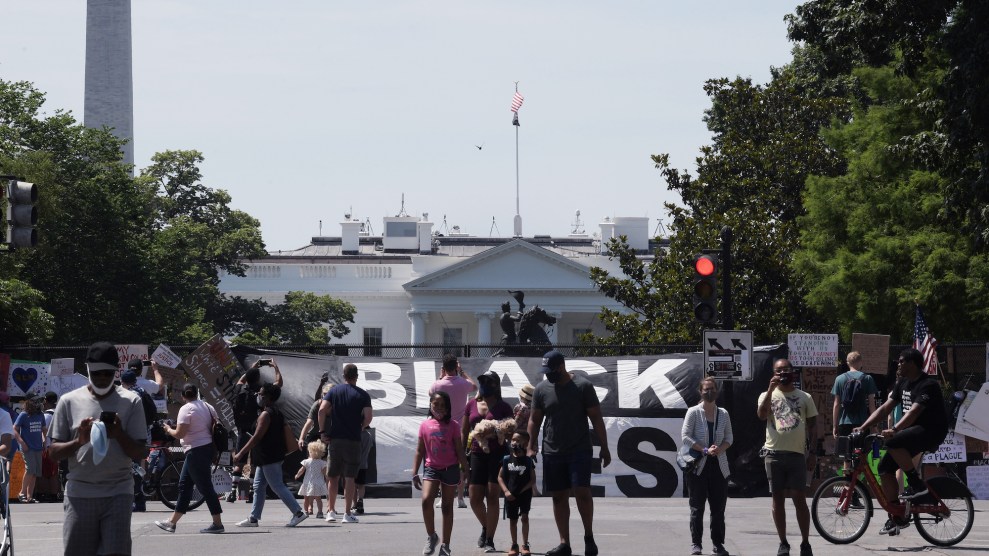
Ron Sachs/CNP via ZUMA
Lately, President Donald Trump has been touting his “really good” environmental record. On Friday, in a press conference on the monthly jobs report, he boasted, “We have the cleanest air, the cleanest water we’ve ever had.”
The Environmental Protection Agency sought to back up this claim on Monday, releasing data giving Trump credit for six different types of pollutants declining a total of 7 percent from when Trump took office in 2017 through the end of 2019.
The polls-obsessed president and his senior advisers know that his record on the environment is a problem for winning over two key demographics: millennials and suburban women. Polling from before the pandemic consistently showed the environment and climate change ranking as his most unpopular issues. No surprise there, since Trump has reversed and weakened 100 environmental rules and counting over the course of his administration.
Trump has gone even further during the pandemic, suspending some of the EPA’s enforcement duties, stopping polluters from reporting emissions, and limiting government reviews to speed up the construction of oil and gas pipelines.
All the while, EPA Administrator Andrew Wheeler has insisted that the EPA remains focused on its “core mission” of reducing pollution. And though the agency is required by law to have nothing to do with election efforts—it has recently stepped up its messaging in 2020 battleground states of Georgia, Pennsylvania, and Michigan, and Florida. Since May 27, the EPA tweeted three times about the air in Pennsylvania and four times about its work in Georgia:
America is a global leader in clear air, paired with a robust and growing economy. EPA’s #DERA grants are just one way we assist Pennsylvania in improving air quality in local communities. pic.twitter.com/oD9fWSSTw0
— EPA Administrator Andrew Wheeler (@EPAAWheeler) June 9, 2020
Working with our partners in @georgiagov, over the past three years we have made real progress to provide cleaner air for Georgia residents through EPA grants and initiatives that reduce air pollution. pic.twitter.com/IE24R9OZ1c
— U.S. EPA (@EPA) May 27, 2020
But the truth is a lot more complicated. Let’s review Trump’s real record on air quality:
- Carbon emissions spiked in the United States in 2018—but they then fell slightly in 2019, because of coal’s shrinking footprint in the power sector. Trump, of course, took credit for the dip—yet the real reason for it was Obama-era environmental rules—the same ones that he has done everything within his power to reverse. Take the Mercury and Air Toxics (MATs) rule that helped usher a wave of coal plant retirements, and stricter ozone standards lowered from 75 to 70 parts per billion in 2014. “From day one, my administration has made it a top priority to make sure America has among the very cleanest air and cleanest water on the planet,” he said in a White House event last summer staged to promote Trump’s environmental record. Of course, the Trump administration has undermined both of these rules, weakening the MATs rule in April and refusing to strengthen the ozone standards despite the scientific evidence that they are still far too high.
- Because of the Obama rules, there’s been a small but steady decline in concentrations of fine particulate matter, the small bits of pollution that lodge in people’s lungs. The Obama administration was able to pass its rules in part because the EPA could show they were working to reduce hospital visits and save lives. Last year, Trump bragged about the fine particulate matter decline. Yet last week, his administration said it would no longer allow the EPA to consider the health benefits from reducing this kind of pollution as a justification for making new rules to protect the environment.
- The EPA also claims that air quality has improved under Trump. Yet according to the EPA’s own Air Quality Index, the number of days per year considered “unhealthy for sensitive groups” in 2017 and 2018 actually increased by 14 percent from Obama’s last year in office. (The EPA blames the spike in 2018 on a record wildfire season.)

- According to the American Lung Association’s 2020 State of the Air report, since Trump took office, significantly more people are breathing unhealthy air: In 2018, 16 million more Americans lived in counties with unhealthy ozone or particle pollution than when Obama left office. That’s nearly five in 10 people, or 150 million Americans.
Trump glosses over these grim statistics as he attempts to use the environment and public health as props to boost his election prospects. John Walke, Natural Resources Defense Council’s clean air and climate director points out that the data looks even worse when you break it down past the national averages, which tend to hide the more alarming pollution on the local level—where communities of color face disproportionate pollution compared to white neighborhoods. “People don’t breathe national averages of emissions—they breathe where they live,” says Walke. “The dirty little secret is that the air would be cleaner in the United States if the Trump administration had never issued any regulations at all.”

















